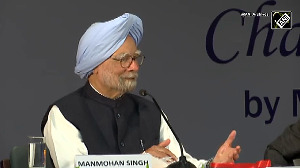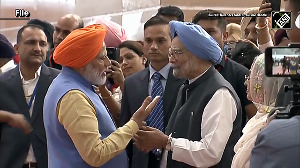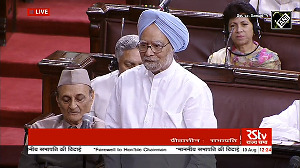While it is true that a host of Indian-owned ad firms have been gobbled up by MNCs, this is par for the course in a globalised world
Santosh Desai, President, McCann Erickson
Are Indian companies being run over by acquisition-hungry multinationals? Is it time to start worrying about who is really going to benefit from the boom in the Indian economy? It is certainly true that the easiest way to enter the Indian market is through acquisitions.
Given the deeper pockets of some MNCs, they could well be in a position to make offers that the Indian entrepreneur finds difficult to refuse. And we have been seeing this happen in more than a few categories. Is this something to worry about?
The truth is that acquisitions also work as an incentive to build businesses. In the technology space, we have seen how the prospect of acquisition fuels start-ups rather than dampens their growth. It allows for a return over a shorter horizon and hence helps breed a spirit of entrepreneurship.
The notion of a business having the same ownership for generations is in any case a throwback to the industrial era when businesses operated under fixed boundaries and the only change seen was of one generation handing over management to the next. Today, in the more fluid world of ideas, ownership, too, is a variable and it helps multiply strategic options.
Also, acquisitions are a double-edged sword. Expensive acquisitions made in the name of a future potential can go disastrously wrong as seen in more than a few cases in India, with Electrolux being the poster boy of this phenomenon.
The real determinant of success or failure is eventually in being able to read the market and deliver to its expectations. Here, multinationals have had a mixed record.
Across categories, we have seen local companies holding their own and giving their multinational counterparts a run for their money. Be it in the FMCG, service or IT sectors, Indian companies have performed extremely creditably. As long as this ability remains, entrepreneurship will continue to thrive.
Finally, the time has come to invert this question. This is the time when Indian companies are looking aggressively at international acquisitions themselves. The advantage of a global economy is that opportunities cut both ways.
This is the time to move out of a siege mindset and to examine the world from a position of strength. The real question is one of the mental model we employ to see the world we live in. If we continue to see it from the narrow perspective of the nation state, with hard boundaries dividing people and markets, then we will continue to ask questions like these.
We need instead to focus on the opportunities that the new world order is throwing and leverage our current attractiveness to our advantage.
In a world ruled by market forces, it would be foolish to let the current buzz that surrounds India go unexploited. After all, in the global economic order, sometimes even exploitation can be a two-way street!
Suhel Seth, Co-CEO, Equus Redcell
Much has been made in recent times about the fact that there are very few Indian agencies left. That is, if you define Indian on the basis of ownership rather than the work they do or the insights they translate into effective marketing communications.
I believe the world has moved beyond ownership of stock and has instead moved to ownership of ideas; ownership of markets and ownership of thought.
If that is the case, as many venerable thought leaders have said, then it really doesn't matter if the name on the share certificate belongs to an Indian or to a Martin Sorrell.
Maurice Saatchi said that if you are the best, you have to be the biggest: something that his former employee Sorrell, has today put into effective practice by building WPP.
WPP is no longer a constellation of companies alone: it is indeed a constellation of competencies and the size that accrues from the gobalisation principle that Sorrell and many like him practice is only indicative of what we will see.
Just like we believe in trans-nationals be they in the foods business or the airline business, the advertising business cannot and must not be left as an island in itself.
I have absolutely no qualms about the ownership of advertising agencies residing anywhere in the world as long as the service they provide to Indian clients and Indian brands is not compromised: nor is the value that its Indian employees derive in terms of acquiring skill-sets that would be otherwise difficult to obtain.
The debate about whether Indians are selling out is long over: by that yardstick we should whine every time an Indian company buys a management asset abroad. I believe selling out at times is only building greater brand synergies for that agency and more importantly for its clients.
As Kenichi Ohmae argues in his long-standing seminal work A Borderless World, geographies of ownership must never dwarf the potential of seamless conquest.
Transferring knowledge can be and must be seen as a more critical process of delivery than just the ownership and there is no badge of patriotism that lends itself to share transfers: there is pride only in delivering greater value and if for that to happen, you term it a sell-out, then so be it.
I believe the Indian advertising agency has never been more vibrant and alive than it is today: it has become part of a global re-definition of the marketing communications universe and it still has miles to go.
The challenge in a seamless world will be to ensure that the insights we gather as Indian advertising agencies is ultimately an enduring benefit to the brand-building process and to that end, whether the owner resides in Delhi or Dallas is just a purely academic debate and meant for the jingoists who in any case there is no place for, in a global economy.
WPP has a 30 per cent stake in Equus Redcell







 © 2024 Rediff.com -
© 2024 Rediff.com -